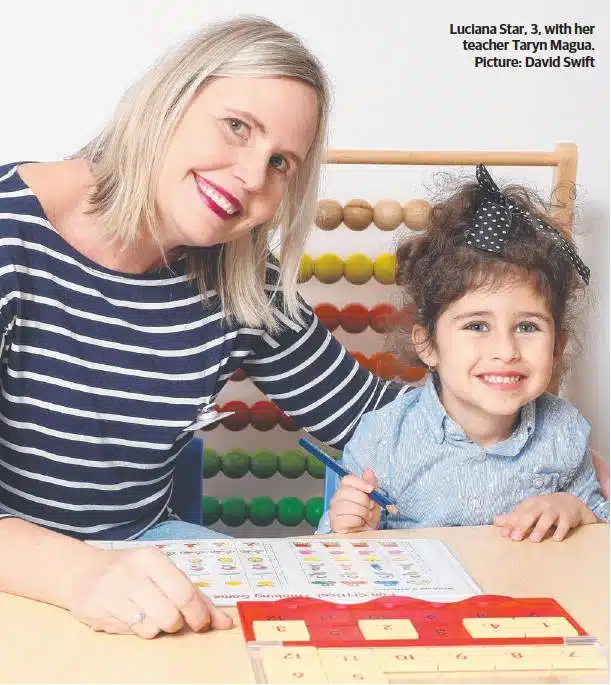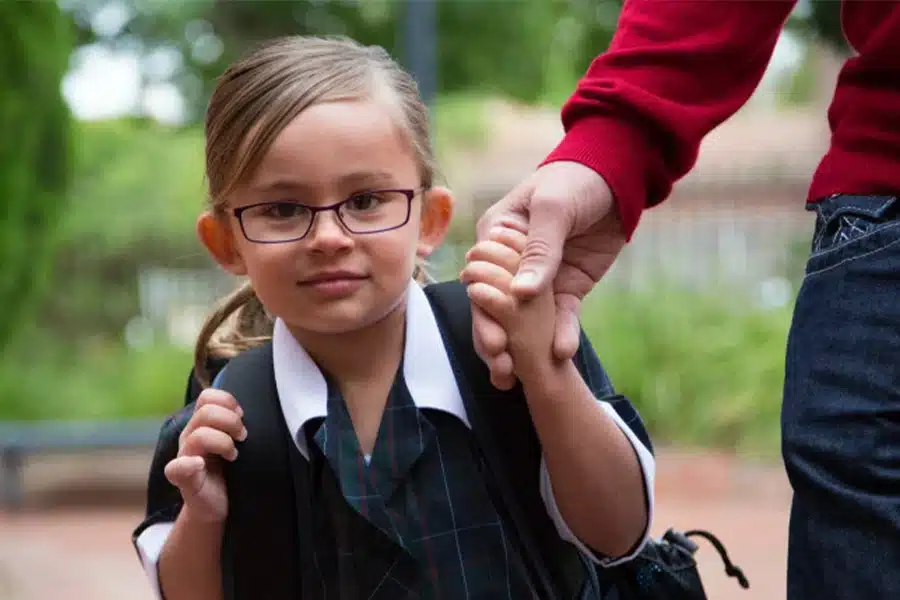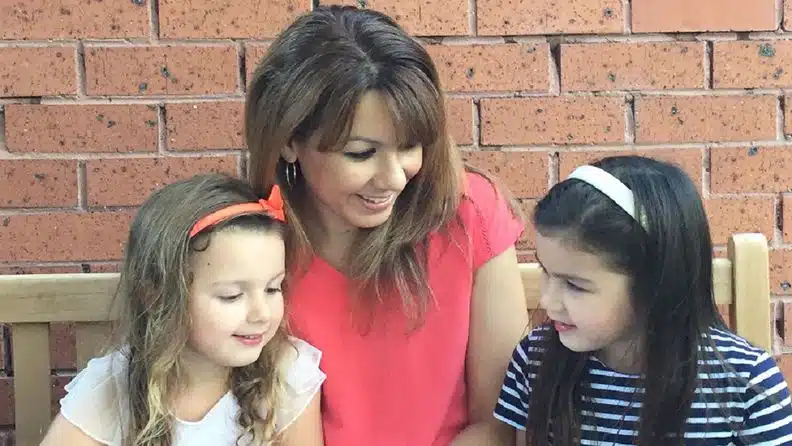This article was originally featured in News.com.au
By Megan Palin
Photo: News.com.au
Shichida Australia: Five-year-old girl with a photographic memory
A FIVE-year-old Sydney girl with an incredible memory can recall things most children have long forgotten. That’s not the only use of her brain – so she was put to the test.
FOR most five-year-olds, the mere mention of “pi” will likely evoke questions as to whether it comes with ice cream or tomato sauce.
No ordinary five-year-old
But Lejla Sinanovic is no ordinary five-year-old.
She hasn’t even started primary school, yet can recite pi on cue to more than 100 decimal places. Lejla allegedly mastered the art in less than 10 weeks.
It’s one of several sequences of numbers Lejla rattles off for news.com.au as proof of her “extreme photographic memory” at the Shichida Early Learning Centre in Sydney on Monday.
She can also recall the names of streets she passed on car trips weeks earlier and details of hotel rooms she stayed in three years ago, when she was just two years old, according to her mother Zineta Sinanovic. She says Lejla could spell her “first and last names” out loud at just 15 months old.
“We started from baby books and sometimes we got to a point where we thought she’d actually learned to read but she had actually just memorised what we’d read to her and could read it back,” Ms Sinanovic says.
“She has an amazing little brain (and) a ridiculous memory that she astounds us with in different ways.”
Lejla, who will start kindergarten next year, “remembers pretty far back”, according to her mother. At just five, her yardstick isn’t long, but she recalls certain things “you wouldn’t think a kid at that age would remember” according to her mum.
Brain training program
But it hasn’t come entirely naturally. Lejla has been attending Shichida classes — a Japanese brain training program. She has been attending for 50 minutes once a week since she was six months old. Back then, her teachers would wave puppets in front of her to “strengthen her eye muscles”. It’s a memory technique still used on babies, who make up some of the organisation’s 440 students Australia-wide, says manager and teacher Hanako Ward.
“It keeps their minds active and stimulated,” Ms Ward says.
As the children grow and their minds expand, more complex techniques are used to develop their memories. Some of the brain training centre activities include flashcards, alphabet charts, speed reading and listening, songs, games and peg words. According to Ms Ward, Lejla now has an “extreme photographic memory”.
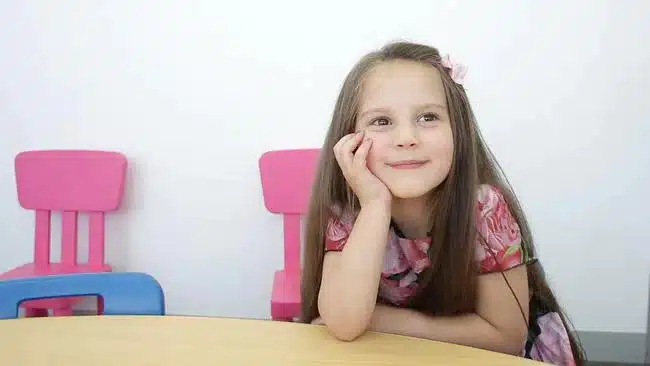
Lejla Sinanovic, 5, has a photographic memory Source:news.com.au
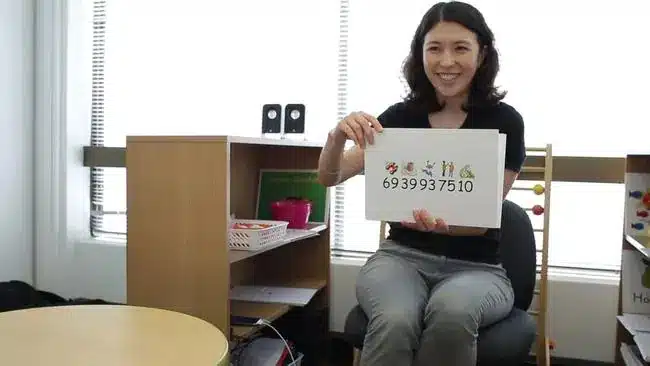
Shichida Chatswood centre manager and teacher Hanako Ward uses flash cards in the ‘brain training program’ Source:news.com.au
WHAT IS PI?
Pi is a name given to the ratio of the circumference of a circle to the diameter.
That means, the circumference of any circle can be divided by the diameter and return the exact same number. It doesn’t matter how big or small the circle is, Pi remains the same.
The pi recital technique is taught by giving each digit from 0 to 200 an associated image — one a pig, two a tree, three a shoe. Lejla converts pi’s digits into the images and remembers the order by telling herself a story — a three and a two might be a shoe-in a tree.
But how does her memory fare when put to the test on topics she hasn’t been prepped for by teachers?
Lejla is asked what she wants for Christmas.
“A Santa toy,” she replies.
What did she get last year?
“A Santa … it’s a beanie Santa,” she says.
Her mother interjects and says the family “doesn’t celebrate Christmas so that might be a tough one”. Lejla recalls that she received “a toy tiger” for her October birthday this year but stares blankly when asked about what she got the year prior. She’s also doesn’t appear to recall any gifts her parents may have received in recent or past times.
Her teacher sets up activities so Lejla can demonstrate her skills in ways she’s more familiar with. She shows the little girl a page with various words on it then hides it and hands her a blank sheet to replicate what she saw. Lejla focuses and completes the task twice but gets them wrong on both occasions.
Confidence and excitement
“I think people put a negative connotation of teaching kids at a young age because they think it’s all about forcing them into a situation where they’re having to learn,” Ms Sinanovic says.
“But that’s totally not what it is … she gets confidence and excitement from going. It’s all I can ask for.”
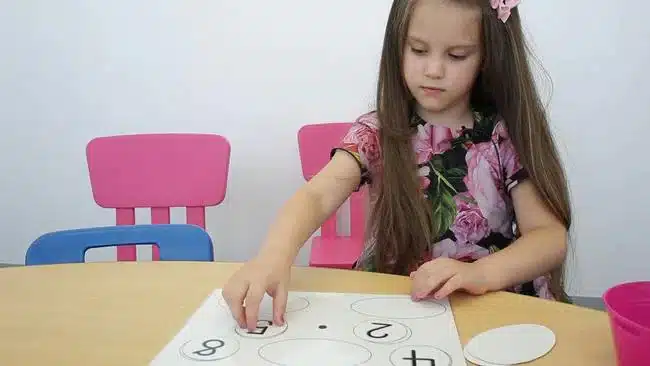
Lejla Sinanovic, 5, attempts to replicate what she saw on a flashcard moments earlier Source:news.com.au
Unique approach to early childhood education
The unique approach to early childhood education uses a whole brain development method, which combines findings of brain research with education. The brain training centre program is open to children from six months to nine years old.
According to Ms Ward, Shichida is growing in popularity in Australia. She says the organisation has gained an average of 100 new students each year since opening in 2013. It has three centres in Melbourne and one in Sydney with a fourth to open in Parramatta in the middle of next year.
“It’s to stimulate kids from a young age and give them a love of learning,” Ms Ward says.
“Under the age of three is when it’s easy for children to acquire a photographic memory.
“We’ve got a few little geniuses but that’s not the aim (although) it can be (a side effect).
“We have a child that can remember the whole periodic table of the elements and that’s something he’s decided to learn on his own accord.
Parents just want to give their kids a headstart
“The majority of our parents just want to give their kids a headstart and early brain training centre classes.”
Her comments come as a global study this week that found many 10-year-old students in Hong Kong and Singapore can read and write English better than Australian children.
The Asian students were tested in English and 26 per cent scored top marks — double the proportion in Australia.
However, critics of Shichida claim that starting brain training and early childhood education at six months is too young. They argue that children should not be burdened by the pressure.
University of Sydney early childhood education senior lecturer, Dr. Marianne Fenech, states that play-based learning from an early age has a substantial body of research supporting it.
“Play-based early learning is a great way to facilitate children’s early development,” she says. “Learning starts from birth … it doesn’t have to be one-to-one, sit-down, formal rote learning.”
The Shichida method, developed in Japan nearly 50 years ago by Professor Makoto Shichida, teaches around 44,000 children worldwide. Globally, there are over 490 centers.
